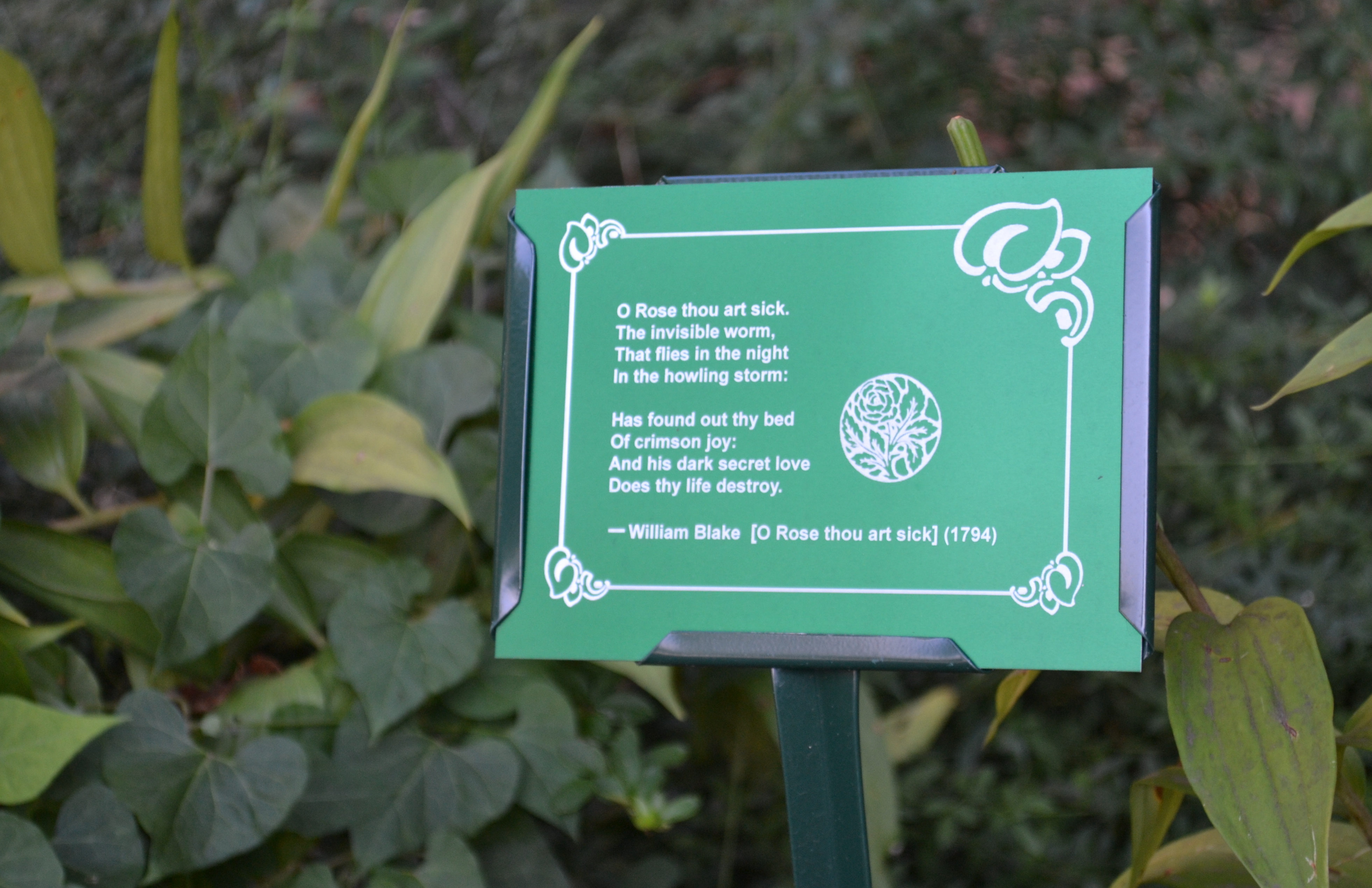Literary garden takes root on Fairfax campus
 A 1794 poem by William Blake is positioned on a placard in the new literary garden by Robinson A. (Kevin Loker)
A 1794 poem by William Blake is positioned on a placard in the new literary garden by Robinson A. (Kevin Loker)
One of several changes to George Mason University’s Fairfax campus this summer is the addition of the “literary garden” in front of the Robinson Hall A building. The garden is an assemblage of plants and small markers with poetry verses planted around the sign to the building.
The project was initiated by students, faculty and staff members within the English Department, as well as by members of the Undergraduate English Society.
According to English Department Chair Robert Matz, who helped plan and construct the project, “A literary garden features flowers and herbs along with literary quotations.”
Members of George Mason University’s Undergraduate English Society were involved in the initial planning of the project which received a range of help from students, faculty, staff and even their families.
“Faculty contributed quotations and I and another faculty member in the [English] Department did the planting – along with some help from my kids,” wrote Matz in an email to C2M.
So, what can you expect to see, smell and read in the university’s new literary garden?
“Our garden, so far, has Yarrow, Black-Eyed Susans, Butterfly Bush, Lilies, Sage, Rosemary and Thyme,” said Matz. “And poetry from Shakespeare and Wordsworth among other writers.”
One example of the poetry in the garden is William Blake’s 1794 poem, “O Rose thou art sick.”
O Rose thou art sick.
The invisible worm,
That flies in the night
In the howling storm:
Has found out thy bed
Of crimson joy:
And his dark secret love
Does thy life destroy.
Literature to be included in the garden was chosen based on preference, the only stipulation was the quotations had to be about gardens or what grows in them.
When asked if the English Department has any plans for future projects, Matz responded, “We’d like to keep expanding the garden. And keep it weeded. Want to help?”
